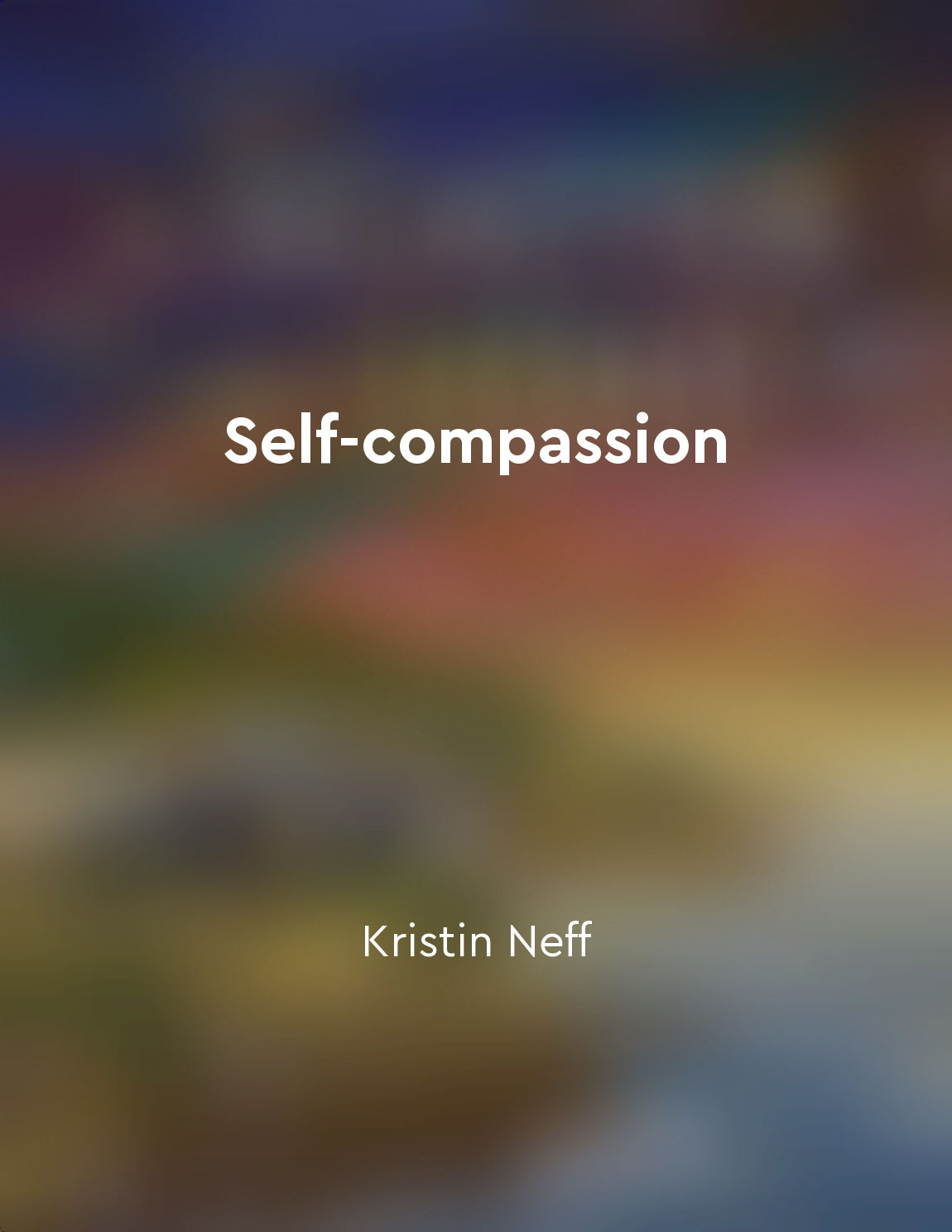Selfcompassion can lead to greater empathy and compassion towards others from "summary" of Self-compassion by Kristin Neff
When we are more compassionate towards ourselves, we naturally become more understanding and empathetic towards others. This is because self-compassion involves recognizing our shared humanity and interconnectedness. When we acknowledge our own struggles and imperfections with kindness, we are better able to recognize and empathize with the struggles of others. By developing self-compassion, we cultivate a sense of compassion that extends beyond ourselves. We begin to see that everyone experiences pain, failure, and difficulties in life. This realization helps us connect with others on a deeper level, as we understand that we are all in this together. Our empathy grows as we become more attuned to the universal human experience of suffering. When we practice self-compassion, we are less likely to judge and criticize others. Instead, we approach them with understanding and kindness, knowing that everyone is deserving of compassion. This shift in perspective allows us to respond to others with greater empathy and support, fostering stronger and more meaningful relationships.- Self-compassion serves as a foundation for cultivating compassion towards others. When we learn to treat ourselves with care and understanding, we naturally extend that same care and understanding to those around us. This ripple effect of compassion can create a more compassionate and empathetic world, where kindness and understanding are the norm.


